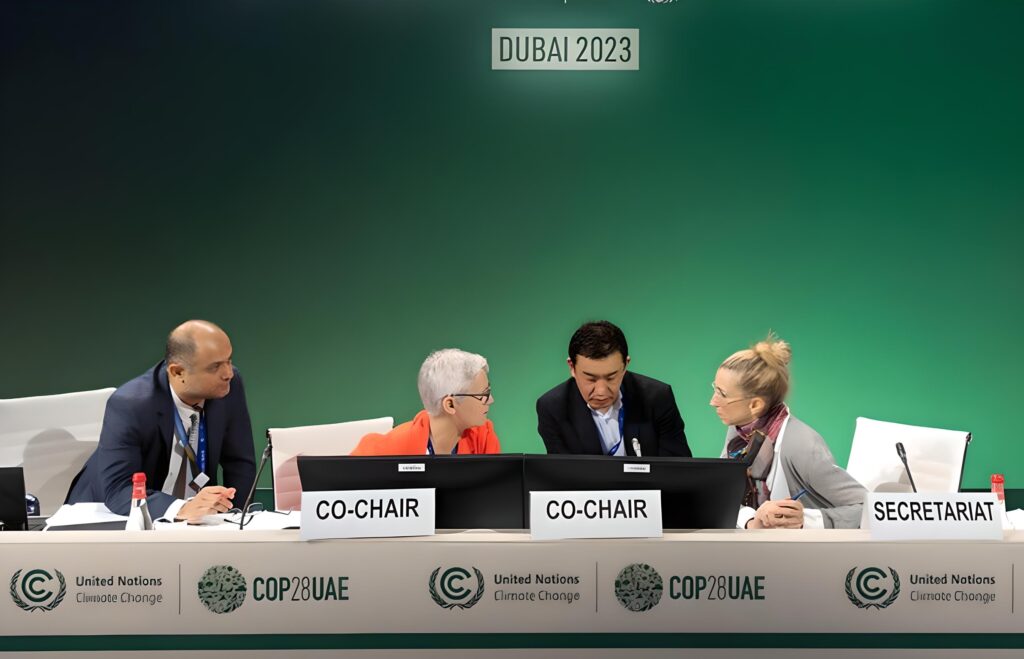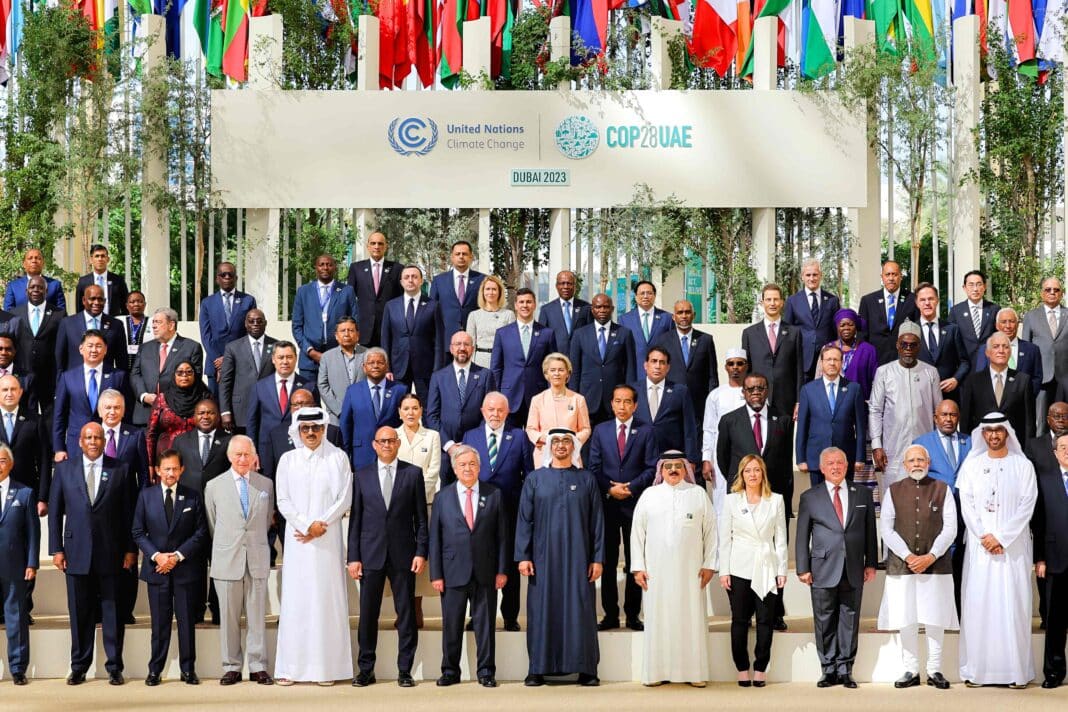Hopes of clinching a long-awaited deal on carbon trading mechanisms have evaporated under Dubai’s desert sun after a tussle between the EU and the US dashed hopes of a breakthrough.
It comes as negotiators from the Global South voiced concerns that including “non-market” activities could see carbon taxes and levies added to the mix, leading critics to warn of “carbon colonialism.”
Negotiations will continue at COP29 in Baku, Azerbaijan after the COP28 president took a “take it or leave it” proposal to climate negotiators deemed unacceptable and roundly rejected.
The collapse now leaves bilateral deals in limbo – with several countries striking deals to buy carbon credits from others to meet their emissions targets.
It includes the UAE, which, through the controversial startup Blue Carbon, is establishing the world’s most ambitious carbon offset program, whilst Singapore inked its first deal with PNG on Friday.
Earlier this month, Wood Central reported that the mechanisms, which would have established standardised credit methodologies between countries, were instrumental to global leaders establishing a UN-operated international carbon credits market.
The discussions have been a crucial focus of the COP28 summit and followed COP26, where negotiators in Glasgow reached an agreement to regulate the trading of carbon credits in schemes first envisioned in Article 6 of the 2015 Paris Agreement.
However, the countries disagreed on the fundamental rules to trade offsets bilaterally and to kickstart the UN-sanctioned market – which could pave the way for global governments to drive carbon investment into publicly owned forests.
It comes as the two opposing and ultimately irreconcilable forces fueled tense marathon negotiations regularly stretching into the early hours yesterday.
Whereas the US championed a “light-touch, no-frills” approach, with the market fuelled by the private sector in the voluntary market, the EU – backed by Latin America and Africa – wants a “compliance market” focus with more vigorous checks and balances and a “loosening of confidentially clauses”, which could prevent scrutiny.
The risk is that, with a weak framework, the new mechanism could become a dumping ground for junk credits, with the breakdown in talks sending rule-makers into a tailspin.
Over 12 months and several meetings, a technical body drafted rules on methodologies underpinning projects and the eligibility of removal activities – however, countries rejected the body’s recommendations.
“Trading carbon credits requires strong environmental and human rights guardrails,” according to Gilles Dufrasne, policy lead at Carbon Market Watch.
“The text on the table just didn’t provide this. It would have risked reproducing the mistakes of voluntary carbon markets, and by rejecting it, negotiators made the best out of a bad situation.”
Mark Kenber, the executive director of the Voluntary Carbon Market Integrity initiative, said the need for more agreement would make it harder to achieve the goals of the Paris Agreement.
“For the market to fully develop in the next two years as the UN and governments have called for, policymakers can draw on the foundational work of the VCMI and IC-VCM to accelerate the transparency and integrity agenda, developing high-integrity VCM and Article 6 markets that deliver the finance that makes ambitious global action possible,” he said in a statement.
Establishing an international carbon market will have a major impact on the future of global forest markets, with Damien Walsh, a director of Margules Groome Consulting, revealing to Wood Central that “forest classification” will define the market.
“There is a lot of talk, especially in Europe, pushing for plantation (or planted) forests to be excluded from the international carbon market,” Mr Walsh said, “with the push to have the market limited to natural or natural restoration forest projects only.”
The EU is home to the world’s largest carbon market. Nonetheless, it has a strong bias for natural (or native) forest restoration projects, putting it at odds with countries outside the zone, including Australia, NZ, and the Global South, which have invested heavily in plantations over the past 40 years.
At COP29, negotiators will now determine whether reforestation efforts should be allowed within the multilateral scheme and how to handle issues such as forests burning down after credits are sold.

How do Carbon Markets Work?
Separate from the offsets trading envisioned under the Paris Agreement, there are two types of carbon markets – compliance (supported by the EU) and voluntary.
Compliance markets apply to companies and sectors where emissions cuts are mandatory by law. They operate in the European Union, California and other countries, including New Zealand.
Rules vary, but they typically require companies to buy a permit for every tonne of carbon they emit – effectively forcing firms to pay when they pollute.
The market for compliance emissions was worth US $865 billion last year alone, with the EU making up the vast majority of that sum – but it does not allow any international offset credits, as identified under Article 6.
Some companies under no legal obligation to cut their emissions have set voluntary targets, which they can meet partially through buying credits on a voluntary carbon market – the model the US wants to push for international credits. In 2021, the voluntary market was worth US $2 billion.







